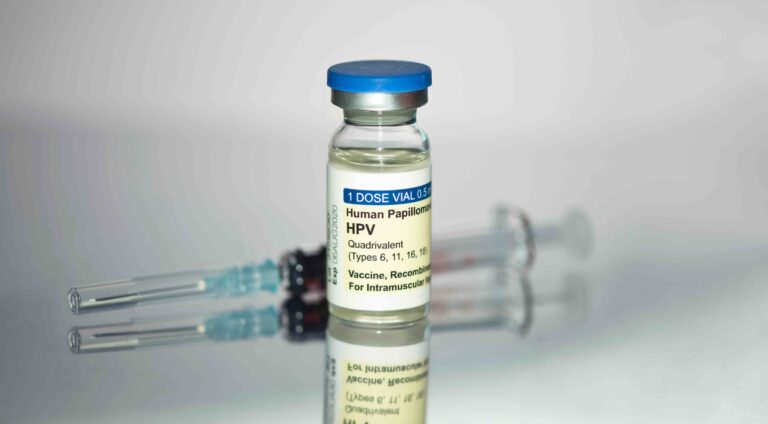Did you know vaccines can help protect against some STDs? In this article, we’ll focus on three popular STD vaccines—Hepatitis A, Hepatitis B, and HPV—exploring how they work, who should consider getting them, and the impact they can have on both individual and community health.
Which STDs can be prevented with a Vaccine?
Hepatitis A
Hepatitis A is a liver disease that spreads through close, personal contact with an infected person. For most people, getting hepatitis A isn’t the end of the world. If you’re generally healthy, chances are you’ll recover after just a few weeks. However, you can still spread the disease to other high-risk individuals.
The hepatitis A vaccine is a safe and effective way to prevent this. It’s typically given as a series of two shots, six months apart. The vaccine is made from an inactivated virus, which means it can’t cause an infection. Side effects are usually mild and may include soreness at the injection site, headache, or tiredness.
Hepatitis B
There are two main types of hepatitis B: acute and chronic.
- Acute Hepatitis: short-term illness accompanied by fever, fatigue, loss of appetite, nausea, and muscle/joint pain,
- Chronic Hepatitis: long-term illness that can still lead to serious health problems like liver damage (cirrhosis), liver cancer, and even death.
The vaccine can be given in 3 stand-alone doses. After the first dose, the second dose is given 1 month later, followed by a third dose 6 months after the second dose. You can also make it part of a combination vaccine (more than one vaccine into a single shot). As always, don’t hesitate to talk to your healthcare provider if you have any questions about your risk factors.
HPV (Human Papillomavirus)
Human papillomavirus, or HPV, is spread through sexual activity. In fact, it’s so common that most people will get HPV at some point in their lives. Our bodies are just able to clear out the virus on its own. When you’re unable to clear it out, that’s when it becomes an issue.
The good news is that the vaccine can provide protection against HPV-related health issues, like genital warts and cervical cancer. While it’s most effective when it’s given to people before they become sexually active, it can still be administered up to age 45.
How Effective are STD Vaccines?
HPV Vaccine: 97% Effective
The HPV vaccine has shown remarkable results in clinical trials, found to be nearly 100% effective at preventing genital warts and up to 97% effective at preventing cervical cancer and the cell changes that could lead to cancer.
Hepatitis A Vaccine: 94% Effective
Although hepatitis A isn’t “technically” an STD, it can be transmitted through sexual contact. At least 94% of people who receive a single dose of the vaccine become immune to the virus for several years, if not longer.
Hepatitis B Vaccine: 80% – 100% Effective
Studies have shown that the Hepatitis B vaccine provides 80% to 100% protection. This means that even if you’re exposed to hepatitis B, your chances of developing an infection are significantly reduced once you’ve been vaccinated.
While STD vaccines are highly effective, they can’t protect against all STIs. Schedule an STD test if you suspect you may have contracted something.
Doctor Recommendations for STD Vaccination
Here’s what healthcare professionals advise for each of the three STD vaccines:
- HPV: The CDC recommends that all males and females between the ages of 11 and 12 get the HPV vaccine. The vaccine is administered in two shots, six to 12 months apart.
- Hepatitis A: Children need 2 doses of the vaccine, and the first dose is recommended at 12 – 23 months, with a second dose at least 6 months after that. Infants 6 – 11 months are also recommended to receive a first dose when leaving the country. Adults can get vaccinated at any age; just consult your doctor first.
- Hepatitis B: Infants should also receive the hepatitis B vaccine as a part of their routine immunizations, with subsequent doses administered at specified intervals. For adults, most doctors agree anyone aged 19 – 59 years can (and should) get the hepatitis B vaccine. Your healthcare provider can help you determine the best vaccination schedule based on your age, health status, and risk factors.
Where Can I Get an STD Vaccine?
Wondering where to get an STD vaccine?
Local Doctor’s Office
The first step is to check with your local doctor’s office. Many primary care physicians and family doctors offer STD vaccines as part of their routine healthcare services.
Community Health Clinic
Another option is to visit a community health clinic. They often provide low-cost or free vaccinations to those without insurance or limited healthcare access.
School-Based Health Centers
If you’re a student, school-based health centers can be a convenient place to get vaccinated. Many middle schools, high schools, and colleges now offer programs to help protect their students against STDs.
Don’t Wait Until It’s Too Late…
Peace of mind is everything when it comes to your sexual health. If you think you may have been exposed, it’s time to get in touch with Priority STD Testing. Our process is quick, completely confidential, and your results are available in 24-72 hours—some community health clinics take weeks to provide results!

